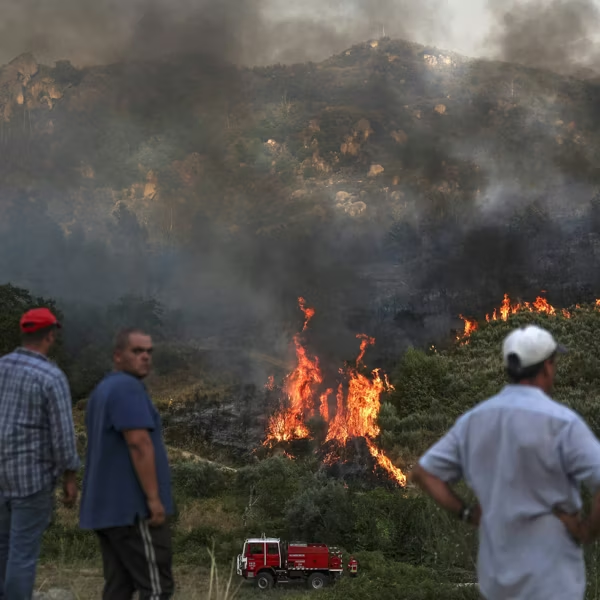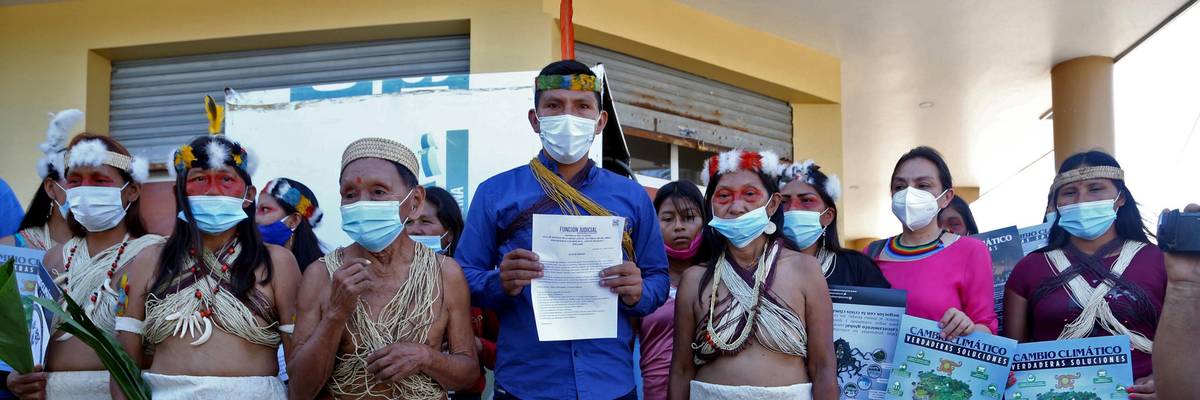Pssst . . . here's a little secret. Don't tell anyone, OK? It might cause trouble.
In recent years, there have been more than a thousand lawsuits filed around the world--including a few in the United States--challenging corporate or governmental negligence about climate change and ecosystem damage.
"The 'Rights of Nature' movement is fundamentally rethinking humanity's relationship with nature, and it is gaining momentum."
That's not the secret. This is the secret: These lawsuits, especially as they continue and grow in number, come with consequences beyond comprehension. They are infinitely larger than "the law" they are humbly summoning in order to address specific issues--a construction company dumping rubble in Ecuador's Vilcabamba River, loggers and farmers destroying the Amazon rainforest, the state of Montana promoting the fossil fuel industry--and are pushing the social and legal status quo well beyond the abstractly linear world it presumes to control.
These lawsuits, whether won or lost, are changing that world. They are part of what is known as the "Rights of Nature" movement, seeming to imply that nature is one of us and deserves, you know, fair treatment. But this movement is, in essence, the opposite of that: We are one with nature. We don't live on a dead planet, which just happens to be populated with trees and flowers and birds and snakes and human beings, etc. Ultimately, this movement, as it pushes the law beyond its linear logic, is forcing the legal bureaucracy to wake up to the fact that Planet Earth itself is a living entity and we must figure out how to live in harmony with it.
"The 'Rights of Nature' movement is fundamentally rethinking humanity's relationship with nature, and it is gaining momentum," writes Tiffany Challe at the Columbia University Climate School website. "It is led by activists advocating for ecosystems such as rivers, lakes, and mountains to bear legal rights in the same, or at least a similar, manner as human beings. This movement is striving for a paradigm shift in which nature is placed at the center and humans are connected to it in an interdependent way, rather than a dominant one."
Here is the same idea put a slightly different way by the Pachamama Alliance: ". . . we are at a moment in history when the Eagle--representing intellect and the mind--and the Condor--representing wisdom and the heart--must come together to ensure the continued existence of humankind."
And there are two particular groups of people playing a hugely significant role in the Condor's merging with the Eagle (i.e., Planet Earth's merging with the global legal system): the young and the indigenous. For some reason, they seem to think they have a say in what happens next on the planet.
Take, for instance, the lawsuit known as Held v. State of Montana, in which sixteen Montana young people, ranging in age from 20 to 4, represented by the nonprofit law firm Our Children's Trust, have sued their state for failing to curb or adequately control the fossil industry, thus contributing to such climate-related issues as wildfires and drought.
The suit, which seeks not money but a court ruling declaring the state's relationship with the fossil fuel industry to be unconstitutional, points out: "Children are uniquely vulnerable to the consequences of the climate crisis, which harms Youth Plaintiffs' physical and psychological health and safety, interferes with family and cultural foundations and integrity, and causes economic deprivations."
The big news is that the case, which was filed nearly two years ago, will actually go to trial. The trial date has been set for February 2023.
Wow, a year from now. This hardly seems like "breaking" news and more like "maybe, someday" news, but it is nonetheless the first children's climate trial in U.S. history, and presumably not the last. Perhaps it seems like an infinitesimally small moment in the endless struggle to create a climate-aware, trans-national, border-free planet--one world!--but the change we are seeking will not be something that happens dramatically. This is about love, not drama. This is about growing up.
Thus the court systems, in countries all across the planet, are being forced to rethink the meaning and reach of "law" itself, which at best is a frequently flawed and inadequate human construct, the enforcement of which may or may not maintain an orderly world. Often enough, it makes matters worse. Nonetheless, the world's court systems represent a collective moral construction project. Environmentalists everywhere are certainly right to assert themselves and participate in it, regardless of outcome.
Consider, for instance, the odd outcome of the first lawsuit in the world that used the Rights of Nature provision, as the Columbia Climate School website explains. This was in Ecuador, in 2011. The Global Alliance for Rights of Nature filed suit against a construction company in the process of building a road across the Vilcabamba River and dumping rubble into the river. Who cares? It's just a river.
But the plaintiffs won the suit; the company presumably was ordered to stop trashing the river. However, the company had another card to play. It ignored the ruling and continued dumping rubble. And the plaintiffs had no money left to file a second suit. The raw wound was left untreated.
But other suits over the years have had success and have chipped away at the impunity of corporations and wealthy business owners to do what they want and must to make money on a dead planet.
Obviously change comes slowly, especially when so much of the moneyed, consuming world remains ignorant of the Condor. But a shift is nonetheless occurring. I hear her wings flapping.




